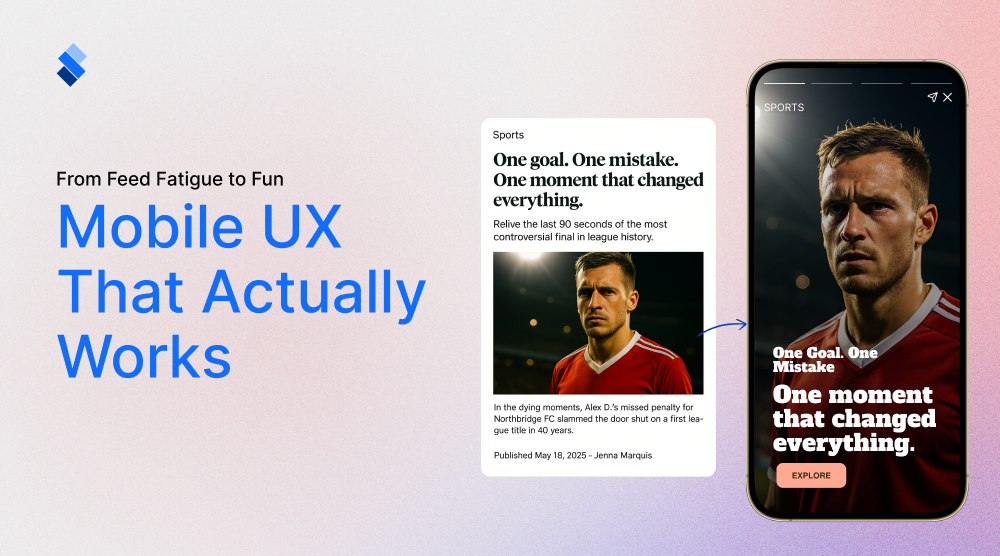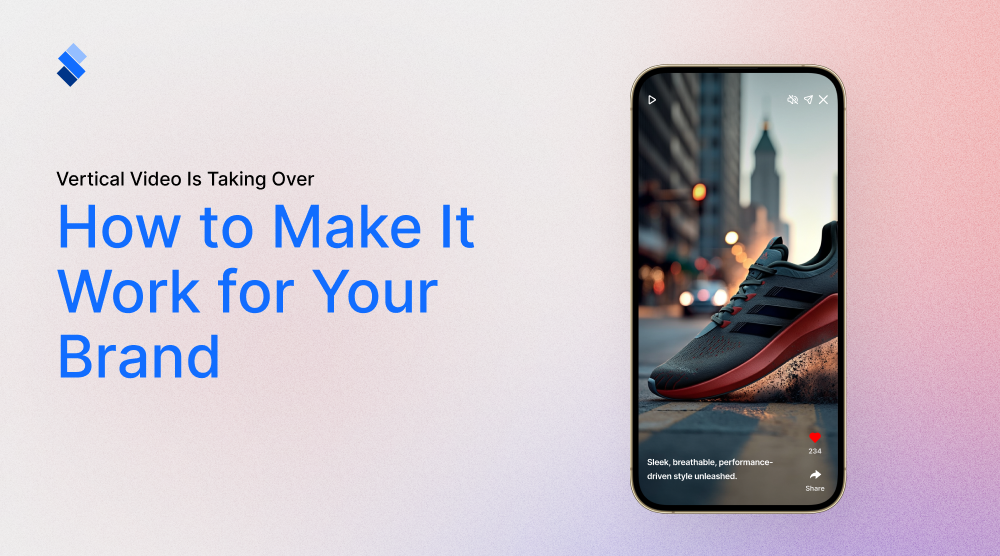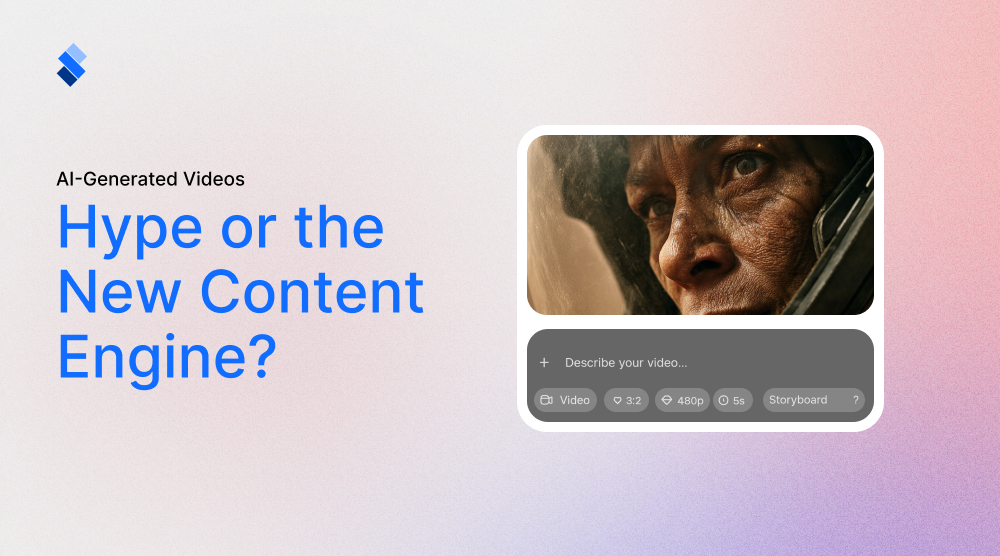5 ways to build trust with Gen Z
Without understanding what they are like, it can be surprisingly difficult to build trust with Gen Z. Luckily, we are here to help.

There is a good analogy to be made between building trust and building glass figures. Both are hard to make, difficult to maintain, and surprisingly easy to break. This goes double when it comes to Gen Z and online companies. Here we have a whole generation that grew up with the internet and is well-versed in how exploitative and deceiving it can be. So, how is a modern company supposed to build trust with Gen Z and convince them to engage with it? Well, that is what we are here to explore.
Gen Z and the internet - a life-long relationship
Gen Z, also known as Zoomers, includes people born roughly between 1997 and 2012. They’re digital natives who grew up with smartphones, social media, and the internet. This makes them highly tech-savvy and used to constant connectivity. The fact that they grew up with the internet gives Gen Z a unique perspective on not only it but the world as a whole. While the older generations had some semblance of trust in the government, the news media, and companies, Gen Z has no such trust. They've grown accustomed to mistrusting first, and only building their trust based on different sources.

So, while it is hard to generalize, it is safe to say that Gen Z values authenticity, diversity, and social responsibility. While we are generalizing, we should also say that they tend to be pragmatic, individualistic, and focused on personal well-being. As a rule, they tend to engage with brands that show transparency, inclusivity, and genuine commitment to social and environmental issues. Especially if these social and environmental issues impact them personally.
How do they perceive online content?
Is being transparent, inclusive, and genuine enough to gain the trust of Gen Z? Well, not quite. But it is a great start. As long as you keep in mind that Gen Z perceives online content through a lens of authenticity and interactivity you'll be able to properly orient your content.
It is important to note that Gen Z is drawn to genuine, relatable content over polished, heavily produced material. Since they have lifelong experience with online marketing, they can easily spot insincerity and are quick to dismiss content that feels inauthentic or overly sales-driven. The WOW factor of marketing won't bring you nearly as much Gen Z audience as honest, and heartfelt content. But, this doesn't mean that you should push a high amount of content "proving" your authenticity. Gen Z prefers short-form, visually dynamic content that they can quickly consume and swipe through. Just think of platforms like TikTok (that Gen Z uses as a search engine), Instagram Reels, and YouTube Shorts. This is the other problem with building trust with Gen Z as you have to do it in an indirect, bite-sized format.
Two factors also need to play a role in building trust with Gen Z. Firstly, you need to provide content that allows for interaction, whether through comments, likes, or shares. These aspects provide a sense of openness to Gen Z because if a person wishes to leave a comment disputing yours, they would. Even participatory formats like polls, live streams, and Q&As can be helpful. Know that they want to be a part of a conversation where it is possible to honestly discuss the quality of a brand or company.
Why the mistrust of marketing?
Well, you can hardly expect a generation that has been exposed to ads from a young age across social media, websites, and streaming platforms to still find them useful. Constant exposure has made them numb to ads where they will subconsciously ignore them. It has also made them selective about the content they engage with as they put add-free content in high regard.

This mistrust has led to Gen Z valuing realness and transparency. They’re quick to distrust brands that prioritize profit over people or that come across as insincere. They prefer brands that share their values, openly address mistakes, and show genuine intentions. Another effect is that rather than relying on brand ads, Gen Z places more trust in peer reviews, user-generated content, and recommendations from micro-influencers. They view these as more credible sources because they seem less financially motivated and more honest.
Lastly, Gen Z is increasingly aware of how brands track personal data for targeted advertising, and they’re uncomfortable with how their information is used without transparency. This might lead you to believe that they are unwilling to share their info, but this is not the case. Gen Z doesn't really mind sharing their information, but they want to have control over it. As an effect, Gen Z has an inherent distrust towards brands that seem to invade privacy. Especially when they do so without permission or clear benefits.
Surefire ways to build trust with Gen Z
So, if you wish to build trust with Gen Z you need to address their inherent mistrust of online marketing and create an honest connection with them. And you need to provide bite-sized content that will help cement your brand as an industry standard. Not an easy task by any metric. But also not an impossible one. To help you tackle it we will outline 5 surefire ways of convincing Gen Z to trust your brand.
Authenticity and transparency
One way to engage with Gen Z is to use authenticity and transparency as doctrines. Doing so might show your brand as inferior (or at least less perfect) when compared to your competitors. After all, the motivation to present oneself as flawless is clear. And one doesn't have to lie to show themselves in a good light. All they have to do is not tell the whole truth. Well, if you are serious about building trust with your Gen Z audience, this cannot be the case. You need to show Gen Z the real you, warts and all.
A way to apply this is to show the real people behind your brand. Why they work, how they work, and what they feel they could do better. You should also communicate openly about your:
- Values
- Pricing
- Business practices
- Mistakes
- Options
Use social media and direct communication to engage in honest conversations rather than relying solely on traditional advertising. You can also run a Discord server or a Reddit post where you can join in on the discussion surrounding your brand.
Purpose-driven and inclusive marketing
If being completely honest and open doesn’t really suit your business model, you can look to different methods. Another way to draw in Gen Z is to adhere more to their values. This includes issues like:
- Inclusivity
- Social justice
- Environmental sustainability.
You should also make sure to use inclusive language and showcase diverse voices in your marketing campaigns to reflect real-world diversity. This should also be the case with your messaging, where it is surprisingly easy to miss the mark. Only with inclusive language can your brand properly resonate with them. Nevertheless, know that some part of your audience might deem that you aren't honest about your commitment and that you are only doing so to gain an audience. But, this is only a reason why your commitment shouldn't be superficial. Instead, look for long-term ways in which you will show your determination.

User-generated content
A somewhat depressing fact of the matter is that, regardless of how honest you are, you'll never be perceived as honest as a regular customer. Namely, because they've had so much experience with online marketing, Gen Z tends to consider all brands as inherently dishonest. Of course, some are far more dishonest than others. But there is an inherent mistrust that Gen Z has with companies that you'll never be able to completely rid yourself of. Well, this is not the case when it comes to what other customers have to say about your brand. And this alone can be the basis of how you build trust with Gen Z.

hat you do is that you encourage customers to share their experiences with your products and showcase user-generated content. An effective way to do so is with influencers. Once you familiarize yourself with influencers who work within your industry, you can look to partner up with them. Ideally, these influencers will align with your brand and have established credibility with Gen Z.
Showcase social proof and transparent reviews
On a similar note, you can look to use user testimonials and reviews to your advantage. Namely, Gen Z tends to rely heavily on reviews and social proof when making purchasing decisions. They can sometimes place more trust in them than in influencers. After all, influencers can have dishonest motivations. So, if you wish to build trust, you can display verified reviews, testimonials, and case studies prominently. This also means that you should encourage genuine feedback.

Keep in mind that both positive and negative reviews can work in your favor. As long as you know how to leverage them. With positive ones, it should be pretty straightforward to express gratitude. But when it comes to negative ones, you need to show accountability and customer care.
Engage with interactive and personalized content
Another way to build trust is to simply rely on psychology. Namely, what we've learned long ago is to build trust with someone or something you simply need to interact with it. The more you interact, the more you'll feel that you can trust it. Since this is pure psychology, this method will work not only on Gen Z but boomers and millennials alike.
There are multiple ways of engaging with your audience. Which one you'll use largely depends on the nature of your brand. You can use interactive formats like polls, quizzes, and Q&As on platforms like Instagram or TikTok. You can embed interactive story content within your website, or design fully personalized interactive experiences. Speaking of, you should also look to personalize recommendations and respond to individual comments to foster a sense of connection. As personalization will imply gathering customer data, you need to ensure that the users are fully aware of what and how you are gathering.
Final thoughts
As always, we like to mention that what we outline should serve as less of a full-fledged plan and more of an outline for business orientation. Ideally, you will have a clear idea of what your brand is about and how it relates to Gen Z. Only with that knowledge can you look to orient your content properly and introduce one of the outlined methods of building trust with Gen Z. Another option is trying to add multiple, but even doing so has its own pros and cons. We would advise you to focus on one and see what kind of effect it has. And, as always, StorifyMe will be here to help you with interactive content creation every step of the way.







